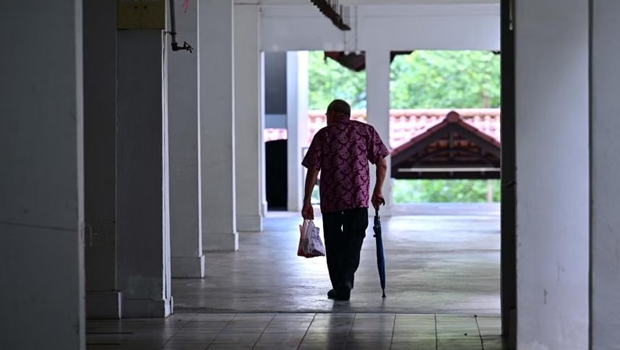
The Health Ministry estimates that 86,000 people, or one in 10 aged 60 and above, have dementia. ST PHOTO: DESMOND FOO
SINGAPORE – Tests on fluid collected from the spine to detect Alzheimer’s disease early are being carried out locally now at the National Neuroscience Institute (NNI), cutting costs by more than half.
They now cost about $810 (before GST), after the local tests started on Feb 5, compared with $1,700 (before GST) previously, when the vials of cerebrospinal fluid were sent to laboratories overseas for the tests.
Cerebrospinal fluid is a clear, colourless fluid in the tissue that surrounds the brain and spinal cord.
The doctor conducts a spinal tap by inserting a hollow needle into the space surrounding the spinal column in the lower back to withdraw the cerebrospinal fluid, which is then tested for protein markers called amyloid and tau.
Associate Professor Ng Kok Pin, a dementia specialist from the department of neurology at NNI, said that through the cerebrospinal fluid, doctors are able to better detect the two proteins associated with Alzheimer’s disease.
These proteins are what neurologists refer to as the “trigger and bullet” for the onset of the disease, making them reliable for its early diagnosis.
The Ministry of Health estimates that 86,000 people, or one in 10 aged 60 and above, have dementia. The number is expected to grow to 152,000 by 2030 as the population ages.
“It takes time for dementia to develop. There’s a pre-dementia phase that can last for years, and if we intervene early, diagnosing dementia, especially Alzheimer’s disease, in the very early stages, the intervention... leads to better clinical outcomes,” Prof Ng said.
The standard test for dementia is usually based on history-taking from patients and their caregivers; and it is only when the decline in cognition is severe enough that a diagnosis of dementia is made, he added.
When it comes to Alzheimer’s disease, the most common type of dementia, tests often include structural imaging with magnetic resonance imaging or computed tomography scans. In addition, tests of memory, problem-solving, attention, counting and language are also carried out.
Prof Ng said scientists discovered that the two protein biomarkers present in the brain of those with Alzheimer’s disease were also present in the cerebrospinal fluid, and this finding would help with more accurate diagnosis of the disease, especially for patients with mild cognitive impairment progressing to Alzheimer’s.
With the discovery, he said, there was some discussion on the possibility of bringing this technology into Singapore and for NNI to provide the testing service, both locally and regionally.
“The tests allow us to know the patient’s biological profile at that point in time and for us to decide if there is a possibility for therapy. We could also use this technology to demonstrate response to treatment,” he said.
Prof Ng said the cerebrospinal fluid tests are also helpful in detecting Alzheimer’s in patients who have symptoms that are mild, or do not have signs that are typical of the disease.

One of the first few patients who had his spinal fluid tested locally was Mr T. Huang, 59.
He became forgetful, but initially thought it was due to his sleep disorder. “Medication did not help,” he told The Straits Times.
Prof Ng scanned Mr Huang’s brain and conducted memory tests, and was reviewing his case when NNI began offering the local tests.
Mr Huang, who has a family history of dementia – his father had Alzheimer’s disease years after he retired and his grandfather suffered memory loss – said: “I was very willing to go for the procedure, hoping that some medical breakthrough would come about in the near future.”
Prof Ng said: “Having the tests now at NNI not only make them affordable, but they also allow doctors to make a more accurate diagnosis in the early stages, so these patients are not lost to follow-up. They get advice, medication, medical therapy and non-medical therapy early to manage the disease.”
Get updates on Tomorrow's Medicine in your mailbox!












